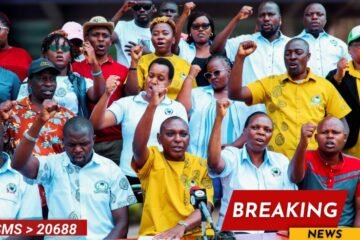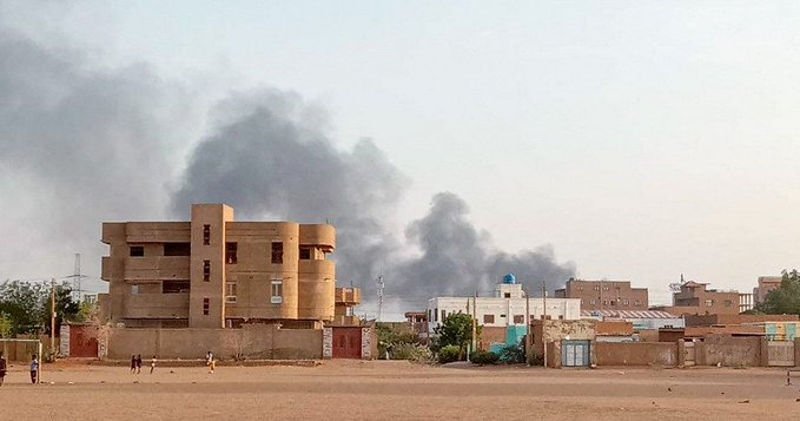The army reported that a civilian airliner crashed in Sudan on Sunday, July 23, for “technical” reasons, killing nine individuals, four of them were soldiers, as the conflict in the East African nation entered its 100th day.
The army said that a youngster had survived the crash of an Antonov airplane that killed nine other people near Port Sudan, on the east coast that had been mostly spared by the war. Due to the violence, the only airport in the nation that is still operational is in Port Sudan.
According to the most recent death toll from the fighting between the paramilitary Rapid Support Forces (RSF) led by Mohamed Hamdan Daglo and the army led by Abdel Fattah Al-Burhan, more than 3,900 persons have been murdered.
The International Organization for Migration reported in early July that over 2.2 million individuals had been domestically displaced, primarily from Khartoum.
The paramilitary Rapid Support Forces appear to be in control of Khartoum’s streets. According to locals and activists, its forces have taken control of homes and other civilian properties over the last three months and turned them into operational bases.
— cvetko35 (@cvetko35) July 22, 2023
In response, the Sudanese army bombarded and airstrike heavily populated civilian areas.
Since the local water station was destroyed at the outset of the war, thousands of people still living in the capital, notably in Khartoum North, are cut off from supplies.
Residents claim that food has almost run out and that there is only sporadic access to electricity.
Essam Abbas, a different Khartoum North resident, remarked, “With the fighting, there is no market anymore and anyway we have no money.”
The neighborhood pro-democracy “resistance committee,” which was formed to aid them, made an urgent appeal.
The committee posted on Facebook, “We have to support each other, give food and money and distribute to those around us.”
The Sudanese army responded by airstriking and bombarding densely populated civilian areas.
Many of the thousands of people still residing in the capital, particularly in Khartoum North, are cut off from supplies because the local water station was damaged at the start of the war.
The locals complain that there is only irregular access to electricity and that there is nearly no food left.
Another Khartoum North local, Essam Abbas, said, “With the fighting, there is no market anymore and anyway, we have no money.”
An urgent plea was made by the neighborhood pro-democracy “resistance committee,” which had been established to help them.
In a Facebook post, the committee said, “We have to support each other, give food and money, and distribute to those around us.”
Attack by an MSF squad
In the war-torn capital of Sudan, Khartoum, an 18-member team of Doctors Without Borders was attacked by armed individuals on Friday (July 21).
The organization claimed on its website that the armed men “aggressively assaulted our team, beating and whipping them after arguing about the reasons for MSF’s presence.”
MSF stated that one of the drivers was momentarily detained. The gang made no mention of the assailants’ uniforms or any other information.
While delivering supplies to the Turkish Hospital, which is situated in the South Khartoum neighborhood, the MSF medical team was stopped on the highway on Thursday.
In a tweet, MSF stated that they were “seriously concerned” that their presence in the Turkish Hospital would soon become untenable.













